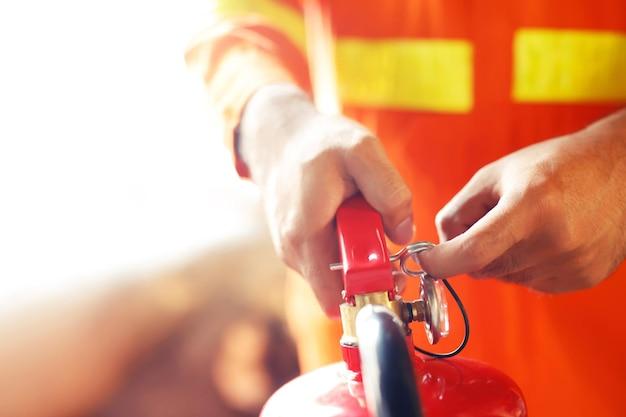Have you ever opened your gas bill and been shocked to see that it has suddenly doubled? It’s a frustrating and puzzling situation that many homeowners have experienced. In this blog post, we will delve into the possible reasons why your gas bill may have skyrocketed, shining light on the factors that can contribute to this unexpected increase in expenses.
As we navigate the constantly evolving landscape of energy prices in 2023, it’s crucial to understand whether gas or electric is cheaper and how you can effectively manage your gas bill. With practical tips and insights, we’ll explore ways to lower your gas bill, identify potential causes for spikes in your electric bill, and offer guidance on the most cost-effective methods for heating your home. Join us as we unravel the mysteries of rising gas bills and equip you with the knowledge to take control of your energy consumption.
What Causes a Massive Spike in Your Gas Bill
We’ve all had those moments of shock when we open our gas bill only to find that it has doubled compared to the previous month. It’s like getting hit by a freight train of unexpected expenses. So, what could possibly cause such a dramatic increase in your gas bill? Let’s explore some potential culprits and see if we can put your gas bill rollercoaster ride to rest.
1. Weather Whammies: Winter Woes
Winter is coming. And so are your gas bills. When the temperature drops below freezing, we tend to crank up the heat and transform our homes into cozy fortresses of warmth. But that comforting heat comes at a cost. When the mercury plummets, your furnace has to work harder to reach and maintain your desired temperature. This increased workload results in your gas bill taking a towering leap. So, embrace the snugness of winter, but be prepared for the sticker shock.
2. Insulation Incidents: Drafts and Leaks
Air leaks are sneaky little troublemakers. Even the tiniest gap or crack in your home’s insulation can let in cold air during the winter or let out cool air during the summer. As a result, your heating or cooling system has to compensate for the temperature fluctuations, leading to more energy consumption and skyrocketing bills. Make sure you’re not unintentionally hosting a draft party in your home by properly sealing any air leaks. Your gas bill will thank you.
3. Appliance Anomalies: Misbehaving Gadgets
Misbehaving appliances aren’t just for sitcoms. Faulty or outdated gas-fueled appliances can become energy-guzzling monsters. A gas range, water heater, furnace, or even a gas fireplace that’s seen better days can start to suck up more gas than usual. It’s like having a houseguest who refuses to leave but insists on consuming all your resources. Consider upgrading to more efficient appliances to keep them in line and your gas bill in check.
4. Rate Hikes: Energizing Energy Costs
The world of energy costs can be a bit like a yo-yo. Unfortunately, it’s not the fun kind of yo-yo that goes up and down but the kind that just keeps going up and up. Gas prices can fluctuate due to market conditions, global events, and political unrest, leaving you with a bigger gas bill than you bargained for. While you can’t control the whims of the energy market, you can keep an eye on prices and choose a suitable plan to minimize the impact on your wallet.
5. Mystery Meters: Meter Mishaps
Meters, the silent sentinel of your gas consumption. But what if those meters go rogue? A faulty gas meter can give inaccurate readings, leading to overbilling and a nasty surprise in your mailbox. It’s like having an unreliable accountant who randomly decides to add a few extra zeros to your expenses. If you suspect foul play from your meter, contact your gas provider to investigate and adjust any discrepancies. It might just save you from paying for mysterious gas consumption.
Stay One Step Ahead: Budgeting Brilliance
Budgeting is the superhero of bill management. Even though we can’t predict every twist and turn that affects our gas bill, we can plan for the unexpected. Set aside a portion of your budget specifically for energy costs. This way, when your gas bill decides to pull out its double trouble routine, you’ll already have a safety net in place. Plus, you’ll have the satisfaction of being able to say, “Nice try, gas bill, but you won’t catch me off guard!”
Gas bill mysteries solved! Now you can confront your doubled gas bill with confidence. From weather woes to misbehaving appliances, you have the knowledge to tackle whatever comes your way. So, gear up, seal those leaks, and keep those meters in check. Your gas bill might try to double down, but armed with these insights, you’ll be ready to back it into a corner and demand some answers!
Note: This blog post is provided for informational purposes only and does not constitute professional advice. Please consult your gas provider or an expert for specific guidance on your gas bill.
Frequently Asked Questions about Why Your Gas Bill Has Doubled
– Why has my gas and electric bill doubled
There could be several reasons why your gas and electric bill has doubled. It could be due to increased usage, changes in billing rates, or issues with your appliances or meter.
– Is gas or electric cheaper in 2023
As of 2023, gas tends to be cheaper than electric for heating purposes. However, the specific costs depend on various factors such as location and energy efficiency of appliances.
– How can I lower my gas bill
To lower your gas bill, you can try implementing some energy-saving practices. Make sure your home is well-insulated, consider upgrading to energy-efficient appliances, adjust your thermostat settings, and be mindful of unnecessary energy consumption.
– What could cause a spike in electric bill
A spike in your electric bill can be caused by multiple factors. It could be due to increased usage, changes in electric rates, malfunctions in appliances, or even electrical leaks. It’s helpful to investigate any sudden changes and, if necessary, consult an electrician.
– Is it cheaper to heat your house with gas or electric
In most cases, it is cheaper to heat your house with gas rather than electric. However, the costs can vary depending on your location, energy prices, and the efficiency of your heating system. It’s recommended to compare the rates and efficiency before making a decision.
– How can I lower my gas central heating bill
To lower your gas central heating bill, try reducing heat loss through insulation, use programmable thermostats to only heat when needed, close off unused rooms, and ensure your heating system is properly maintained and serviced.
– How many units of gas does the average house use per day
The average house in the United States uses approximately 40 to 80 units of gas per day. However, this can vary depending on factors such as the size of the house, the number of occupants, and the energy efficiency of appliances.
– Who is responsible for a faulty gas meter
Typically, the responsibility for a faulty gas meter lies with the gas utility company or the property owner, depending on the specific circumstances. It’s essential to report any issues to the utility company to have them addressed promptly.
– What appliances use the most gas
Appliances like furnaces, water heaters, and stoves tend to use the most gas in a home. These appliances are regularly in use, especially during the colder months, and can contribute significantly to your gas consumption.
– How do you detect a gas leak
Detecting a gas leak is crucial for safety. Look out for the smell of rotten eggs, listen for gas hissing sounds near appliances or pipelines, or keep an eye on any dead vegetation or bubbles in standing water near gas lines. If you suspect a gas leak, leave the area immediately and contact your gas provider.
– What uses the most gas in a home
Heating systems, water heaters, and gas-powered stoves or ovens tend to use the most gas in a home. Monitoring and managing the usage of these appliances can help you control your gas consumption.
– Why is my gas consumption so high
Several factors can contribute to high gas consumption, including inefficient appliances, poor insulation, gaps in windows and doors, thermostat settings that are too high, and even leaky gas pipes. Identifying and addressing these issues can help reduce your gas consumption.
– Why is gas cheaper than electricity
Gas is often cheaper than electricity because it is a more readily available and less costly energy source in many regions. Additionally, gas appliances tend to have higher energy efficiency ratings compared to electric appliances.
– How do I know if my meter is faulty
If you suspect a faulty meter, you may notice irregularities in your energy bills or a sudden, unexplained increase in consumption. In such cases, reach out to your gas provider to request a meter inspection or replacement.
– How can I check if my gas meter is working correctly
To check if your gas meter is working correctly, turn off all gas appliances and ensure no gas is being consumed. Monitor if the meter continues to register gas usage. If it does, there might be a problem with the meter, and you should contact your gas provider.
– How do I keep my heating bills down
To keep your heating bills down, try adjusting your thermostat to a lower temperature, using draft stoppers for windows and doors, insulating your home, and wearing warm clothing indoors. Additionally, consider using programmable thermostats to regulate heating based on your usage patterns.
– How often should gas meters be replaced
Gas meters typically have a lifespan of 25 to 30 years. However, the need for replacement may vary depending on local regulations and individual circumstances. It’s best to consult your gas provider to determine the appropriate schedule for meter replacement.
– How much gas does a 4-bedroom house use
A 4-bedroom house in the United States generally uses between 80 and 160 units of gas per day. As with any household, the actual consumption will depend on various factors such as the size of the house, number of occupants, and energy efficiency measures in place.
– Is it cheaper to heat with gas or electricity in 2023
Generally, it is cheaper to heat with gas rather than electricity in 2023, but this can vary based on location, energy prices, and the efficiency of heating systems. It’s advisable to compare the costs and efficiency before deciding on a heating option.
Remember, understanding the factors behind your gas bill doubling can help you identify potential issues and make informed decisions to manage your energy consumption effectively.

